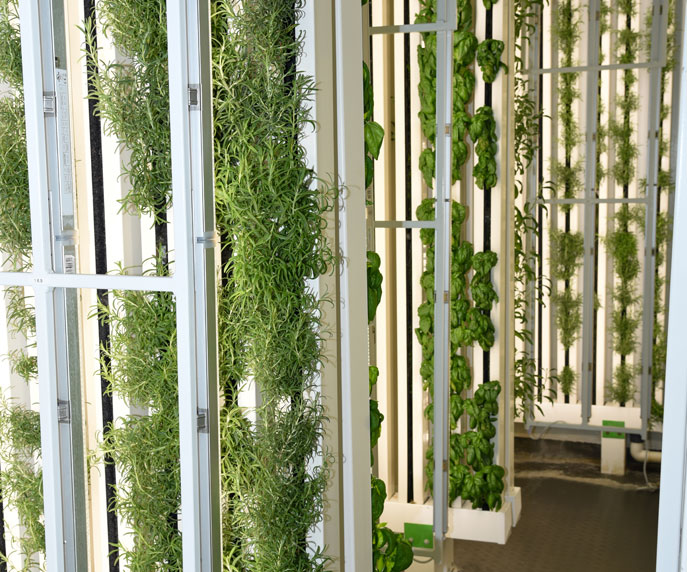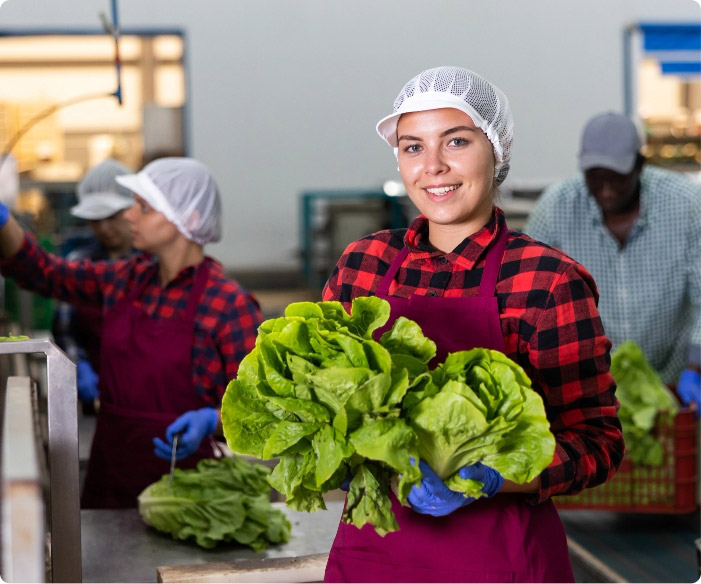Paving the way
At NuLeaf Farms, we believe the future of agriculture depends on equipping the next generation of farmers with the right tools, skills, and technologies to succeed. Farming today is no longer just about hard work in the field — it’s about harnessing innovation to grow more food with greater efficiency, sustainability, and precision.
Through our state-of-the-art indoor farming systems and advanced automation platform, aspiring farmers gain hands-on experience in modern, data-driven agriculture. Our farms serve as living classrooms where students, apprentices, and new growers learn how to manage climate controls, optimize nutrient delivery, monitor crop health, and analyze performance metrics — skills critical to thriving in today’s food production landscape.
By combining expert consulting, customized training programs, and scalable growing solutions, NuLeaf Farms is dedicated to fostering a new generation of agricultural leaders who will shape resilient, sustainable food systems for years to come.

Innovative Training Programs
At NuLeaf Farms, education is at the heart of our mission to cultivate the next generation of farmers. Our comprehensive training programs combine hands-on experience with cutting-edge agricultural technology. Trainees learn how to operate advanced indoor farms, mastering everything from hydroponic systems and nutrient management to climate control and data analytics. These programs are designed to equip participants with practical skills that prepare them for the demands of modern farming — blending traditional knowledge with innovative practices. We collaborate with schools, community organizations, and Indigenous groups to deliver customized curricula that inspire and empower learners across diverse backgrounds.
Learn more about Indoor Farming
Strengthening communities through food knowledge and local engagement.
Connecting people to their food fosters a greater appreciation for the journey from seed to plate. When individuals understand how their food is grown, sourced, and prepared, they develop healthier eating habits and make more sustainable choices. This connection builds trust in local food systems, supports farmers, and encourages community involvement. By bridging the gap between consumers and producers, we nurture a shared responsibility for environmental stewardship, food security, and social well-being — laying the foundation for resilient, thriving communities.
Learn more about food security

Equipping people with the tools and knowledge to grow smarter, more sustainable food systems.
The future of farming depends on blending traditional knowledge with cutting-edge technology. Advances in automation, data analytics, and controlled environment agriculture are transforming how food is grown—making it more efficient, sustainable, and accessible. Developing skills in these technologies empowers farmers and communities to optimize crop yields, reduce resource use, and adapt to changing environmental conditions. Investing in technology and skills development is essential for building resilient local food systems that support economic growth, environmental stewardship, and food security for generations to come.
Learn more about sustainability
Partnering for a sustainable future, one farm at a time./p>
At NuLeaf Farms, we believe that lasting change happens through partnership and shared vision. Our collaborations with educators, community leaders, Indigenous groups, and industry innovators are driving the future of sustainable agriculture. Together, we’re not just building farms — we’re cultivating opportunities, empowering new generations of farmers, and advancing resilient local food systems.
These success stories highlight how combining technology, education, and community support creates measurable impact — from increased food security and job creation to environmental stewardship and social equity. When we innovate together, the growth is more than agricultural — it’s transformational for people, communities, and the planet.
Join us in shaping a future where sustainable farming is accessible, efficient, and a catalyst for positive change.
Contact Us